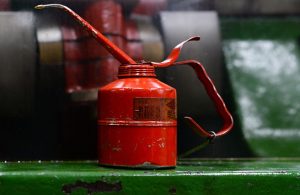
Engine oil isn’t limited to automobiles. Most airplanes use it as well. Also known as aviation oil, it plays an important role in protecting against engine failure. Airplanes, however, don’t use the same type of oil as cars and trucks; they require a special type of engine oil that’s formulated specifically for their needs.
The Basics of Airplane Engine Oil
Most airplanes use synthetic engine oil. There are two primary types of engine oil: conventional and synthetic. Conventional engine oil is derived from natural compounds, such as mineral oil. Synthetic oil, in comparison, is derived from chemical compounds. While conventional engine oil is commonly used in automobiles, most airplanes use synthetic oil.
MIL-PRF-23699 and MIL-PRF-23699 are two common types of engine oil used in airplanes. They are both synthetic oils, and they both follow a specific United States military standard as indicated by the “MIL” prefix. There are other types of airplane engine oil, but IL-PRF-23699 and MIL-PRF-23699 are two of the most common.
The Purpose of Airplane Engine Oil
Airplane engine oil serves several purposes, one of which is to cool the engines with which it’s used. Most airplanes are powered by combustion engines, such as turbofans, that burn a mixture of fuel and air. This combustion process generates a lot of heat that, if left unchecked, can lead to catastrophic engine failure. Engine oil, however, works to cool engines so that they don’t overheat.
In addition to cooling, airplane engine oil reduces friction. Airplane engines have a lot of moving parts. As these parts move, they will create friction. Friction can lead to excess heat, as well as degradation, of the respective parts. Engine oil will lubricate the engine’s parts while subsequently protecting them from friction.
Characteristics of Airplane Engine Oil
Regardless of the specific type, airplane engine oil typically has some key characteristics. The viscosity, for instance, is higher than that of automotive oil. Viscosity is a measurement of thickness. The higher a fluid’s viscosity rating, the thicker and more resistant to flowing it will be. Airplane engine oil has a high viscosity rating that gives it a thick, sludge-like consistency.
Airplane engine has a high thermal stability rating. It must be able to withstand extreme temperatures without breaking down. Thanks to the high thermal stability rating, airplane engine oil can handle the hot temperatures of jet engines.
Another key characteristic of airplane engine oil is oxidation resistance. Oxidation can cause the compounds in oils and other substances to break down, resulting in the loss of performance. Airplane engine oil is designed to resist oxidation while maximizing the performance of the engines with which they are used.



